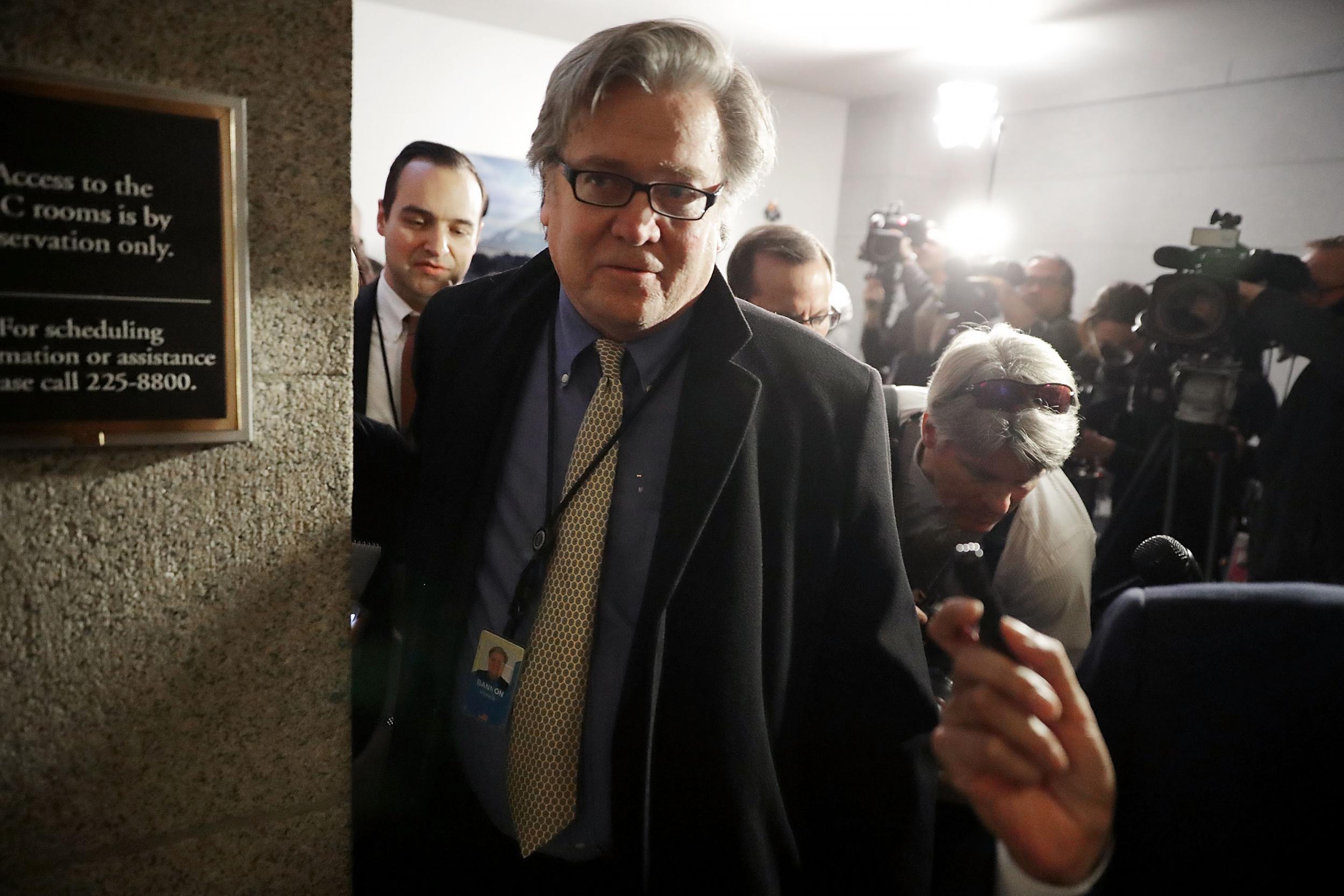The interview that got Steve Bannon fired
Mr Bannon was forced out of the White House after he revealed his ambition to 'crush' political opponents

Steve Bannon was forced out of the White House after he labelled members of the white supremacist movement "clowns".
Mr Bannon downplayed the danger posed by Ku Klux Klan and neo-Nazi sympathisers and revealed his ambition to dominate anti-Trump groups focused on "race and identity" in an interview with left-wing magazine The American Prospect on Tuesday.
The Breitbart News boss's combative remarks came as Republicans and Democrats called for him to be removed from his post following Donald Trump's controversial response to the Charlottesville attacks which left one dead and dozens injured on 12 August.
Asked about racist elements of the far-right, Mr Bannon said: “Ethno-nationalism, it's losers. It's a fringe element. I think the media plays it up too much, and we gotta help crush it, you know, uh, help crush it more.
“These guys are a collection of clowns.”
He said of the Democrats: "The longer they talk about identity politics, I got ’em. I want them to talk about racism every day. If the left is focused on race and identity, and we go with economic nationalism, we can crush the Democrats.”
Mr Bannon initiated the interview by calling The American Prospect days after Mr Trump declined to give assurances about the future of his role as chief strategist.
He appeared to be at odds with the President's stance on North Korea, claiming any threats of military action against Kim Jong-un's regime were unrealistic.
"Forget it. Until somebody solves the part of the equation that shows me that 10 million people in Seoul don’t die in the first 30 minutes from conventional weapons, I don’t know what you’re talking about, there’s no military solution here, they got us," he said.

In his comments on China, Mr Bannon claimed he was moving people around the Trump administration to tackle what he described as an “economic war” with the Asian superpower.
"I'm changing out people at East Asian Defence; I'm getting hawks in," he added.
"I'm getting Susan Thornton [acting head of East Asian and Pacific Affairs] out at State. That’s a fight I fight every day here. We’re still fighting.
“We’re at economic war with China. It’s in all their literature. They’re not shy about saying what they’re doing. One of us is going to be a hegemon in 25 or 30 years and it’s gonna be them if we go down this path."
The right-wing ideologue, who helped the president win support from the "alt-right" during his election campaign, subsequently claimed he did not realise his comments were "on the record".
Following his departure from the Oval Office on Friday, Mr Bannon said the Trump presidency was "over".
The media mogul was considered a key influencer during Mr Trump's "America first" campaign and his early days in the White House, and was briefly awarded with a seat on the National Security Council's principals committee, the top interagency group overseeing national security.
His nationalist stances on issues like immigration, trade and society were reflected in Mr Trump's speeches and policies, and are widely seen as having drawn together the New York billionaire's support base after he joined the struggling campaign as chief executive last August.
But once in power he was forced to compete for influence with other advisers including members of Mr Trump's family.
Ivanka Trump and her husband, Jared Kushner, seen as being able to soften the President's tone and actions, both occupy official White House posts.
Mr Bannon failed to cling on to power during a turbulent period in the White House with a series of resignations and sackings at the highest level.
Mr Trump removed both Reince Priebus, his then chief of staff, and Anthony Scaramucci, briefly his communications director, in the space of four days.
Sean Spicer, who was Mr Trump’s press secretary, resigned in apparent protest at Mr Scaramucci’s appointment.
Join our commenting forum
Join thought-provoking conversations, follow other Independent readers and see their replies
Comments